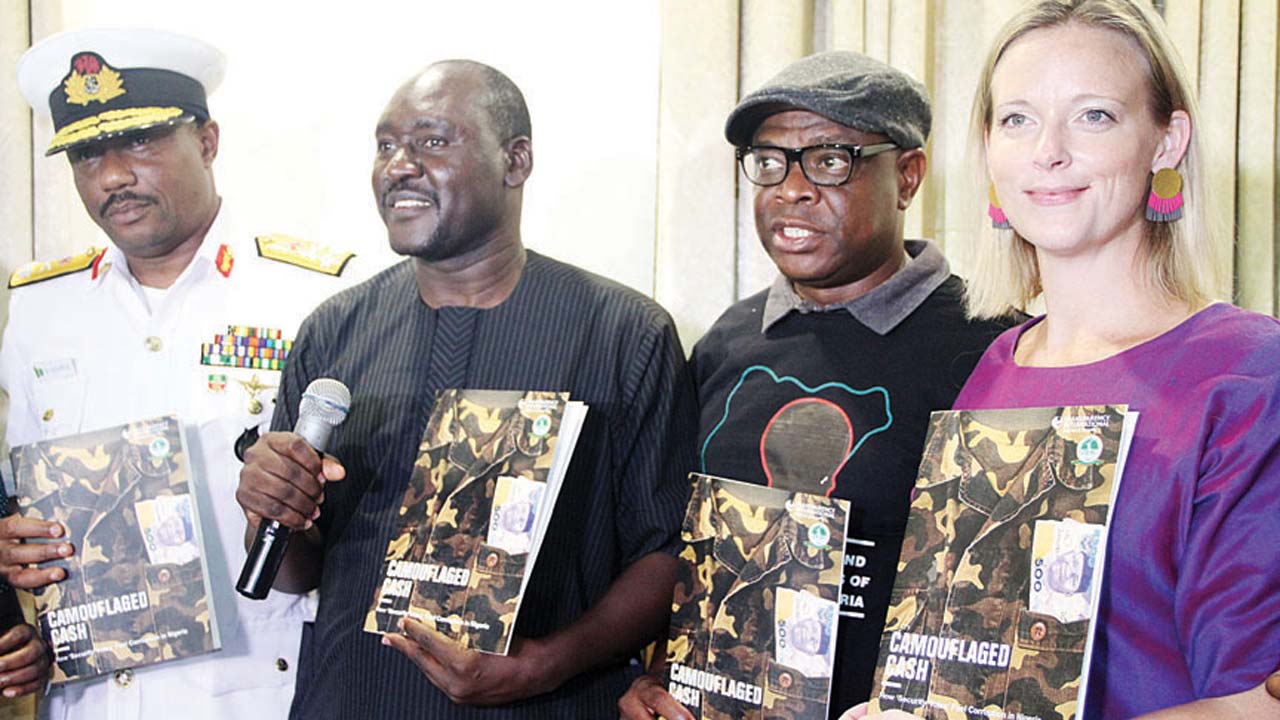
Stakeholders in the public and private sector as well as the Civil Society Organisations (CSOs) have condemned the growing budget allocation to security vote, describing it as the highest channel of corruption in Nigeria.
The stakeholders, including Senate President Bukola Saraki, represented by Maj.-Gen. Saleh Maina, top military officials, Justice and Security Adviser on Conflict Security and Stability Fund of the British High Commission, Katrina Aitken-Laird; Executive Director, CISLAC, Auwal Ibrahim Musa and others, spoke yesterday in Abuja at the launch of a report by Civil Society Legislative Advocacy Centre (CISLAC) and Transparency International (TI).
They sought an end to the situation through an Act of the National Assembly that would bring a stop or a structure that would be accountable and transparent.Besides, they expressed worry that lack of established budgeting process, independent audit and legislative oversight, the undefined classification and lack of public tender and competitiveness in the allocation were clear indication of corruption.
While Saraki stressed the need for effective security system and adequate budgeting in the country, Aitken-Laird stated that the Nigeria needed to move from theory to taking practical actions against leakages.Aitken-Laird stated that if the situation must stop, there would be need for partnership between the Legislative and the Executive.
According to the report, titled “Camouflaged Cash: How Security Votes Fuel Corruption in Nigeria”, Nigeria’s N241.4 billion security vote allocation in the latest budget is more than the yearly budget of the Nigerian Army, above the yearly budget of the Nigerian Air Force and Navy combined, more than 70 per cent of the yearly budget of the Nigerian Police Force, almost three times the United States (U.S.) security assistance since 2012 and higher than 15 times the United Kingdom (UK) counter-terrorism support for 2016-2020.
The stakeholders said the increasing security votes, in the face of growing security crisis where security operatives are starving, was not only ridiculous, but also a danger to democracy.Musa, who stated that laws backed by legislation specifying budgeting procedures and criteria for security expenditure must be provided to address the situation, said security votes represent a significant waste of resources that our legitimate military forces desperately need to tackle the range of security issues that is bedeviling the country.
Also, Director of Transparency International Defence and Security, Katherine Dixon, said: “The security vote is one of the most durable forms of corruption operating in Nigeria today. Yet, instead of addressing its many urgent threats, the ever-increasing use of security votes is providing corrupt officials with an easy-to-use and entirely hidden slush fund.”
In a related vein, Executive Director, Partners West Africa, Kemi Okenyodo, insisted that a lot of public officials are feeding on the current security challenges in the country, adding that the situation would escalate without parameters and structure for security vote in the country.She implored the Federal Government to explain to Nigerians the level of mechanism put in place for accountability in ensuring that corruption in the name of security vote is tamed.
Also, an expert, from Centre for Crisis Communications, Chidi Omeje, said the management of security vote remained obscure and a way for state government to fund their political ambitions.
[ad unit=2]



